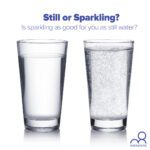If you’re experiencing hair loss, you may be wondering, “Can hard water cause hair loss?” Hard water is a mineral-rich water that has a number of negative effects on the hair. Whether you’re a rural well owner or live in an urban area, you may be experiencing the negative effects of hard water.
Ayurvedic remedies for hair loss caused by hard water
If you have hair that has been damaged by hard water, the best remedy for your problem is an Ayurvedic treatment. These treatments involve the use of special shampoos that are gentle on the scalp and hair. They also help to reverse the damages caused by hard water on hair and promote new hair growth.
There are many different ways to treat this problem. Changing your water source can help to reverse some of the effects of hard water. However, you should see a qualified Ayurvedic physician to determine the best regimen for you. In many cases, the problem is related to the Vata Dosha, a type of imbalance in the body that can lead to hair loss.
In Ayurvedic medicine, you must start with addressing the root cause of your problem. The first thing you should do is to cleanse your body. This can be done by undergoing a detoxification process. This will help the body balance out the various elements and eliminate any unnecessary waste. Another remedy is to apply oils to your head and scalp. This will not only nourish the hair follicles but also the sensory organs in your scalp. It will also help improve blood circulation to nerve ends in your scalp.
If you’ve been suffering from hair loss caused by hard water, Ayurveda may be the solution to your problem. The ancient Indian system of medicine offers natural solutions for the condition, free from side-effects.
Calcium deposits in hard water
The problem of hard water can affect your hair and scalp in many ways, including the appearance of lifeless hair and a dry, irritated scalp. While hard water is generally considered healthy for drinking, it has been found to have harmful effects on both your hair and skin. If you have a hard water problem, it might be time to consider installing a water softener in your home. This solution is both convenient and hassle-free.
The good news is that hard water does not cause permanent damage to your hair, though it can make your hair strands look frizzy and dry. Furthermore, hard water can reduce the effectiveness of many hair-care products, as they react with minerals found in the water. This can cause hair colour to fade or turn brassy, and make it feel weighed down. Fortunately, there are plenty of remedies available to combat the effects of hard water on hair and scalp health.
One of the easiest and most effective ways to find out if your water is hard is to test the concentration of calcium carbonate in your tap water. Hard water contains high amounts of dissolved minerals, including calcium, magnesium, and bicarbonate. The minerals in hard water can damage the hair follicles by preventing them from receiving the necessary nutrients. If you live in an area with hard water, it is recommended to install a water softening system, as it will reduce the amount of these minerals in your water.
Dry, damaged and frizzy hair
Hard water contains minerals that can weigh down your hair and make it look frizzy and dry. Over time, this can also cause your hair to lose its color and become brittle. Additionally, frequent hair washing with hard water can strip your hair of essential oils, which makes your hair more difficult to manage.
To combat this problem, you can use a clarifying shampoo. These products can help remove the mineral buildup in your hair, and will also give your hair a squeaky clean feeling. Hard water will leave soap residue on your hair, and this can be hard to remove.
Another simple way to counteract hard water damage is to use an apple cider vinegar rinse. Combine one tablespoon of vinegar with two to three cups of filtered water and then rinse your hair thoroughly. This rinse can remove hard water buildup and restore your hair’s shine. This rinse will also help stop your hair from losing its color, which is a common side effect of hard water.
If you are concerned about the health benefits of drinking hard water, you can consult a water expert in your area. A water expert can assess the mineral content in your water and recommend an inexpensive solution.
Scalp calcification
Scalp calcification is a common problem in which excess calcium deposits accumulate on the scalp. This mineral is essential to the body in supporting the health of our teeth and bones, but too much of it can be harmful. Fortunately, there are a few steps you can take to combat the problem.
Calcium deposits form anywhere on the body and become disruptive when they harden. This can block blood flow to hair follicles, contributing to hair loss. In men, this condition is often accompanied by male pattern baldness. Hard water, hair products, and other chemicals can all contribute to calcification.
Hard water reacts with the surfactants in shampoos, forming chemicals that stick to the scalp. This causes scale calcification, a condition where calcium carbonate deposits on the scalp prevent the follicles from receiving adequate nutrition. Scalp calcification can also lead to eczema and flaking. A healthy scalp is a vital part of achieving a full head of hair, and a good water quality can help prevent hair thinning.
Using a shampoo containing ascorbic acid can help to combat the problem. Ascorbic acid removes mineral buildup and discolouration caused by hard water. A high concentration of ascorbic acid can help calm any scalp irritation, while boosting the growth of new cells.
Acidic ingredients in vinegar rinse
Using an ACV rinse to treat hair loss is a simple way to improve your hair’s health. You can also use it to treat dandruff and oily hair. Simply mix it with water and leave it on your hair for a few minutes.
ACV rinses are especially beneficial for people with curly hair. The acidic content of the vinegar helps individual strands bounce without weighing them down. The acidic ingredients in vinegar have been used for over 2,000 years as a food additive, wound-healing agent, and surface cleaner. However, there have been a few cases of skin and hair irritation, including one case of hypokalemia in a 28-year-old woman.
When applied to the scalp, vinegar helps break down minerals in hard water and makes hair smoother. However, it is not as effective as chelating shampoos. ACV also tightens the cuticle of the hair. ACV can be used alone or in combination with a hair product.
Hard water is made up of minerals that are harmful to your hair. The minerals in hard water make your hair less flexible and brittle. The harder it is, the more these minerals will bond to it. These minerals can also make it more susceptible to breakage and damage from hair products.
Adding alum to hard water
Adding alum to hard water is an inexpensive way to purify and soften the water. It works by removing particles that have a positive charge and repelling one another. Unlike larger particles, the tiny particles in water do not settle down because they lack gravitational force. The negative charge of alum helps it dissolve in the water and join up with the suspended particles.
It also helps prevent oxidation, which is a known cause of hair loss. Mineral deposits in hard water can cause dandruff and damage the hair follicles. To reverse this problem, you can add alum to the water that you use to bathe and wash your hair. Alum can be bought at grocery stores.
Alum is also an excellent remedy for bleeding gums. It has anti-bacterial properties and relieves toothache and mouth odor. In addition, it can cure urine infections, which are common among women, especially in the summer. Dehydration leads to bacteria in the urine. By bathing in alum water, you can reduce the chance of getting a urinary infection.
Alum treatment should be performed at least once annually in mid-June, at decreasing rates. The dose for the first year should be 150,000 gallons. The second year’s dose will be based on the first year’s results, but should not be less than 100,000 gallons. The City should also make provisions for premature phosphorus replenishment from Firesteel Creek, particularly if the summer is wetter than normal.








